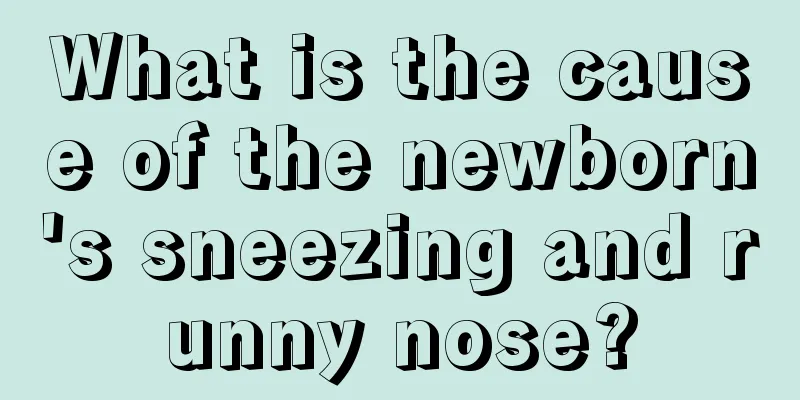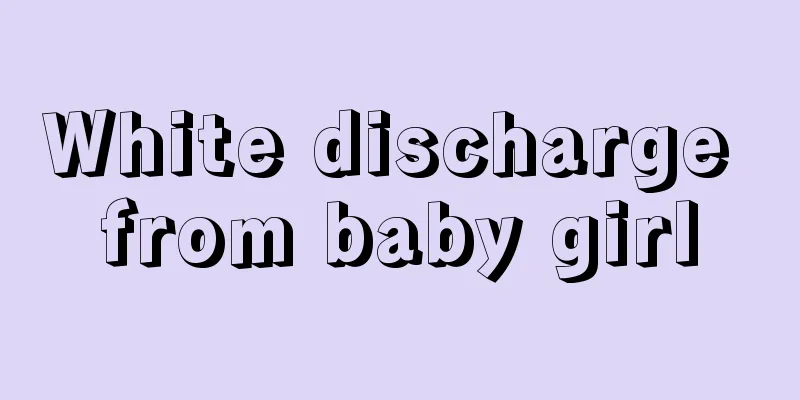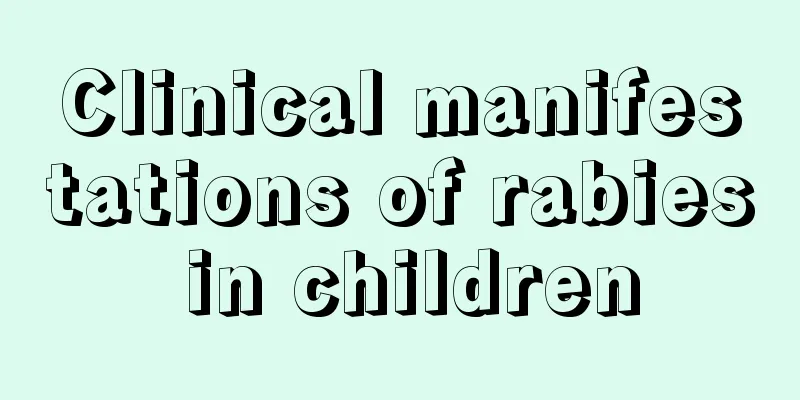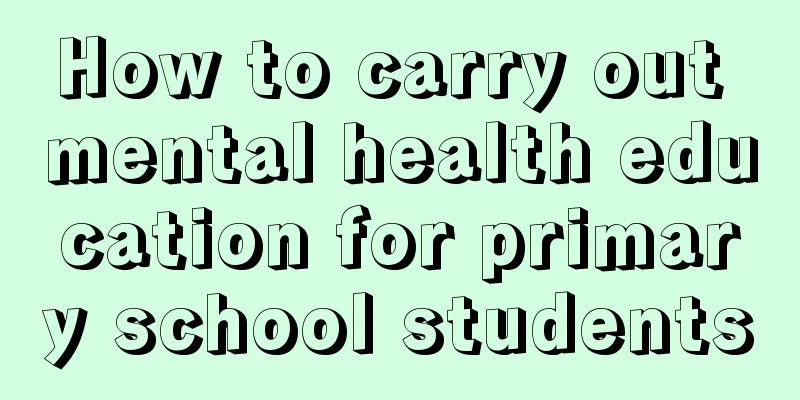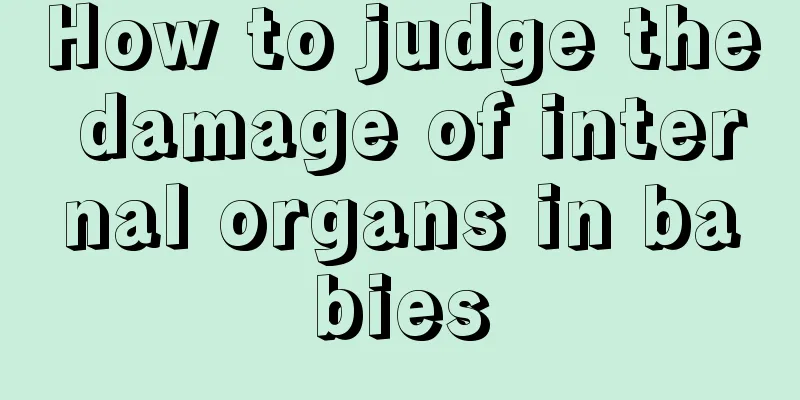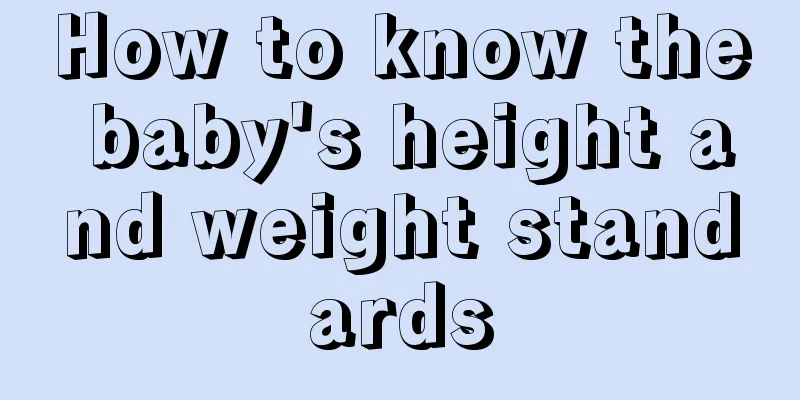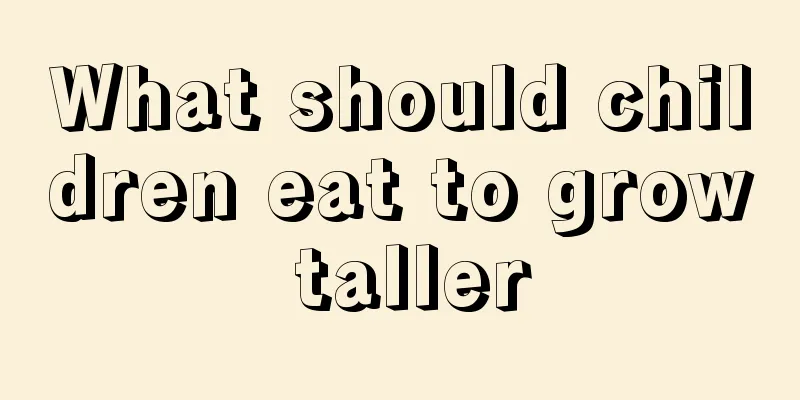The child is twitching, rolling his eyes and foaming at the mouth
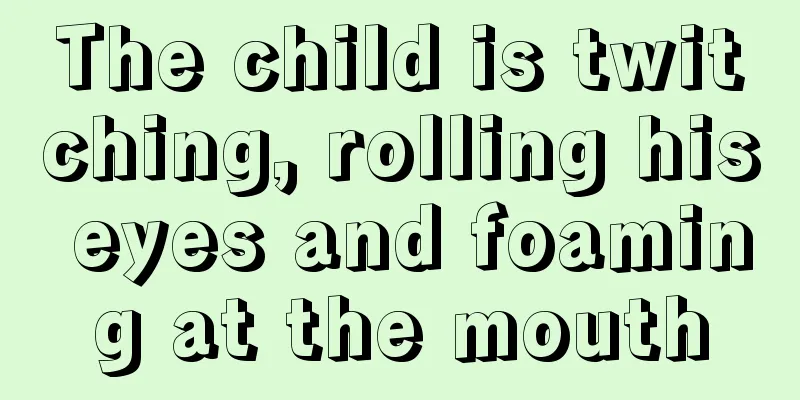
|
Convulsions are a relatively serious disease, especially if a child has symptoms of convulsions, parents will be very panicked and worried. Many children will roll their eyes and foam at the mouth when they have convulsions, which is generally a manifestation of childhood epilepsy. Childhood epilepsy has a huge impact on children. If not treated in time, it may even hinder their future growth. So, what should we do if our child has convulsions, rolls his eyes and foams at the mouth? Childhood epilepsy is a common neurological syndrome in children (0-18 years old) with complex causes, recurrent, paroxysmal, temporary brain dysfunction. The causes are divided into primary and secondary. The causes of childhood epilepsy are mostly perinatal ischemia and hypoxia, cortical dysplasia, low-grade gliomas, encephalitis, trauma, etc. From the neonatal period to adolescence, the structure and function of the nervous system are in a process of rapid development and shaping. Therefore, epilepsy in different age groups is different from that in adults in many aspects, from etiology, pathogenesis, clinical manifestations to prognosis. The causes of epilepsy in children are diverse and the clinical manifestations vary. We should do our best to diagnose the cause and choose appropriate treatment. Especially for children under 6 years old, which is a critical period for brain development, it is recommended to actively control epileptic seizures to facilitate the growth and development of children. Epidemiology of childhood epilepsy. Foreign epidemiological studies have reported that the incidence of epilepsy is 118/100,000 in children under 1 year old, 48/100,000 in children aged 1 to 5 years, 43/100,000 in children aged 5 to 10 years, and 21/100,000 in children aged 10 to 15 years. The prevalence of active epilepsy in the population is 0.5% to 0.7%, of which half are Causes Idiopathic childhood epilepsy accounts for 20% of the total number of epilepsy patients. The cause of the disease has not been found and most of them are related to genetics. Therefore, it is also called cryptogenic epilepsy or hereditary epilepsy. Secondary childhood epilepsy refers to abnormal brain structure or function caused by some unexpected reasons during the growth and development of children, and epileptic seizures caused by abnormal discharge of neural network. The main causes are as follows: 1. Perinatal hypoxic-ischemic brain damage The main causes are birth trauma, asphyxia, intracranial hemorrhage, and hypoxic-ischemic encephalopathy, among which hypoxic-ischemic encephalopathy is the most common cause of epilepsy. 2. Congenital brain malformation Such as lissencephaly, pachygyria, polymicrogyria, gray matter heterotopia, brain perforation, congenital hydrocephalus, corpus callosum dysgenesis, arachnoid cyst, and megalencephaly. 3. Neurocutaneous syndrome The most common ones are tuberous sclerosis and facial angiomatosis. 4. Genetic metabolic diseases Such as phenylketonuria, hyperammonemia, cerebral lipidosis, and vitamin B6 dependence. 5. Intracranial infection Such as bacterial meningitis, viral encephalitis, brain abscess, fungal meningitis, brain parasitic diseases, post-vaccination encephalitis, etc. 6. Nutritional metabolic disorders and endocrine diseases Common symptoms include hypoglycemia, hypocalcemia, hypomagnesemia, and hypothyroidism. 7. Cerebrovascular disease Such as cerebral vascular malformations and cerebral vasculitis. 8. Trauma Intracranial hemorrhage, skull fracture, cerebral contusion, etc. caused by trauma. 9. Brain Tumors Tumors located in the parietal, frontal, and temporal lobes, such as gliomas and astrocytomas, often cause epilepsy. 10 Brain degeneration Macular degeneration, multiple sclerosis, subacute sclerosing panencephalitis. 11. Toxic encephalopathy Drug poisoning; food poisoning, carbon monoxide (CO) poisoning, organophosphorus poisoning, heavy metal poisoning (mercury, lead, arsenic), etc. |
<<: Can I squeeze the abscess on my child's leg?
>>: How many days does it take for baby teeth to come out?
Recommend
What medicine is good for children with colds?
We all know that children's resistance is ver...
Are colds contagious?
Children nowadays are young and have weak constit...
What is the most effective treatment for nasal congestion in children?
Children's resistance is usually weak, so whe...
Why do three-month-old babies sweat on their hands and feet?
Why do three-month-old babies have sweaty hands a...
What should I do if my seven-month-old baby has poor digestion?
There are quite a few people born in the 1980s wh...
How to educate a slow child?
Children are the treasures of parents. Parents ho...
Children often vomit after eating
Taking care of children is a rather hard job. Wha...
Treatment for baby's sweaty hair while sleeping
I don't know if any of us have ever encounter...
Why do children’s teeth turn black?
Oral hygiene is a big problem for children. Child...
What should I do if my child has abdominal distension and fever?
If a child has abdominal distension and fever at ...
What causes children to twitch before sleep?
When sleeping at night, many children will have c...
Three-year-old baby recipes
Many people don’t know much about the diet for th...
There are three reasons for swollen lymph nodes behind the ears in children!
Swollen lymph nodes behind the ears are a common ...
Children's lymphocyte absolute value is high
Because children are young, their body resistance...
What to do if mixed feeding does not want to eat milk powder
When babies reach a certain stage of development,...
